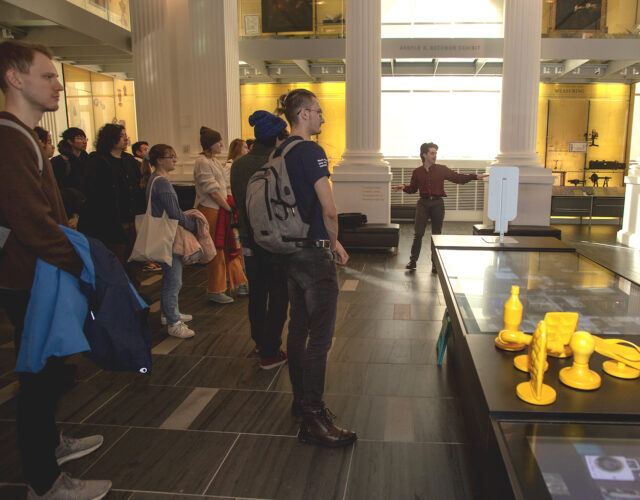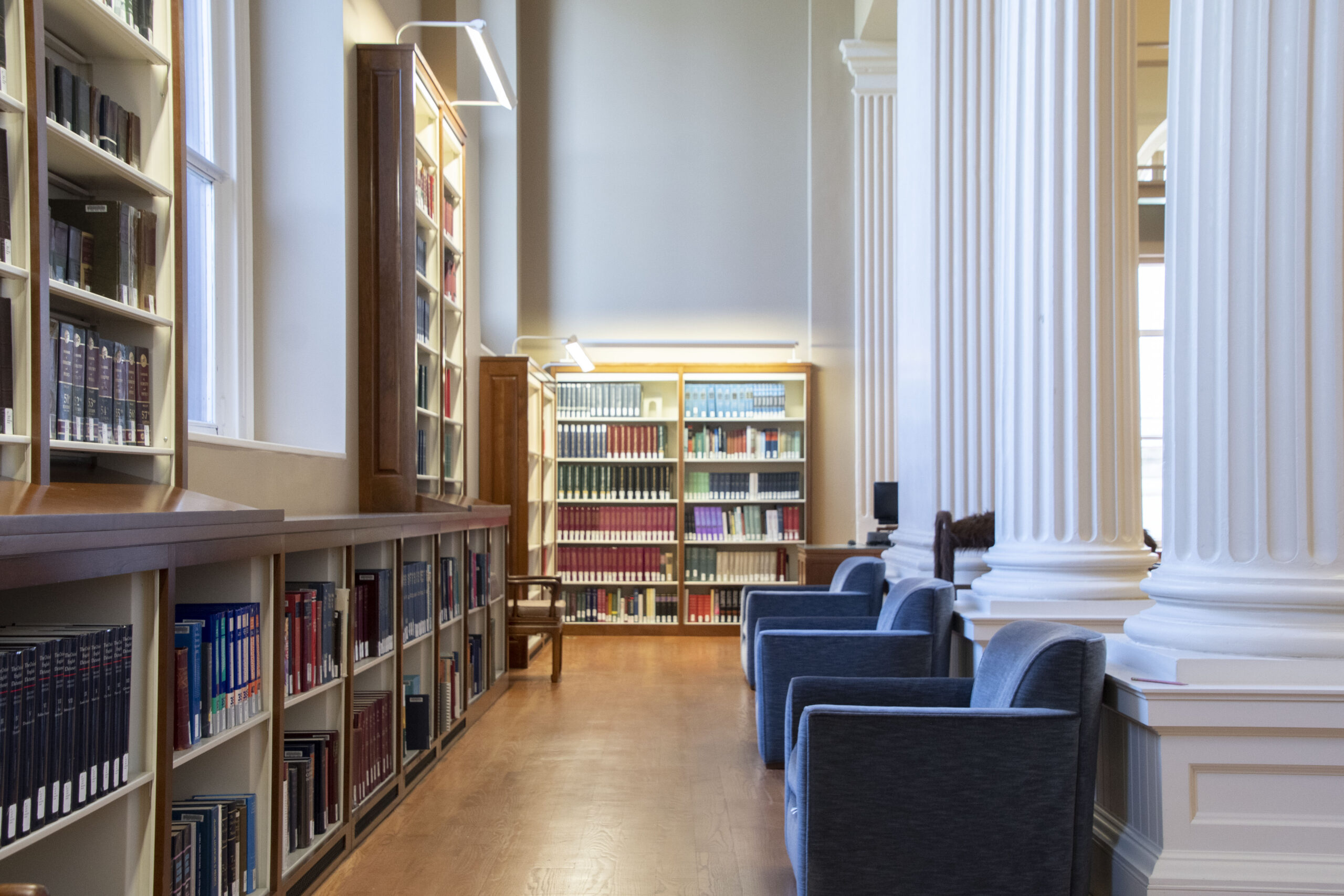CollegeFest 2023

All new and returning Philadelphia-area college students are invited to visit the Science History Institute’s museum during CollegeFest, Campus Philly’s annual city-wide, weekend-long, “Welcome to Philadelphia!” celebration featuring free experiences, fun activities, contests, entertainment, giveaways, and more.
The Institute joins more than 25 of the City of Brotherly Love’s most iconic cultural organizations and attractions offering free admission exclusively to college students. Your official ticket also includes free SEPTA rides right to our front door in Old City.
Students can explore the intersections of environmentalism, education, and fun with our latest outdoor exhibition Playing Dirty, hear the voices and learn the stories of scientists and engineers who immigrated to the United States in the 20th century with our Migrating Science ExhibitLab, and discover the connections between rare earth elements and glass art with Enabling Transparency. And don’t miss our permanent exhibition, which will take you on a journey through more than five centuries of scientific inquiry into the material world.
CollegeFest is organized by Campus Philly. Registration is required.
More events
Red, White, & Blue To-Do
Join us for an exciting day of revolutionary science and the history of fireworks!
Othmer Library Tour
Curious about the other half of the Science History Institute? Step into the Othmer Library of Chemical History!
There Will Be No First Friday Event in July
Have a safe and happy 4th of July weekend!



